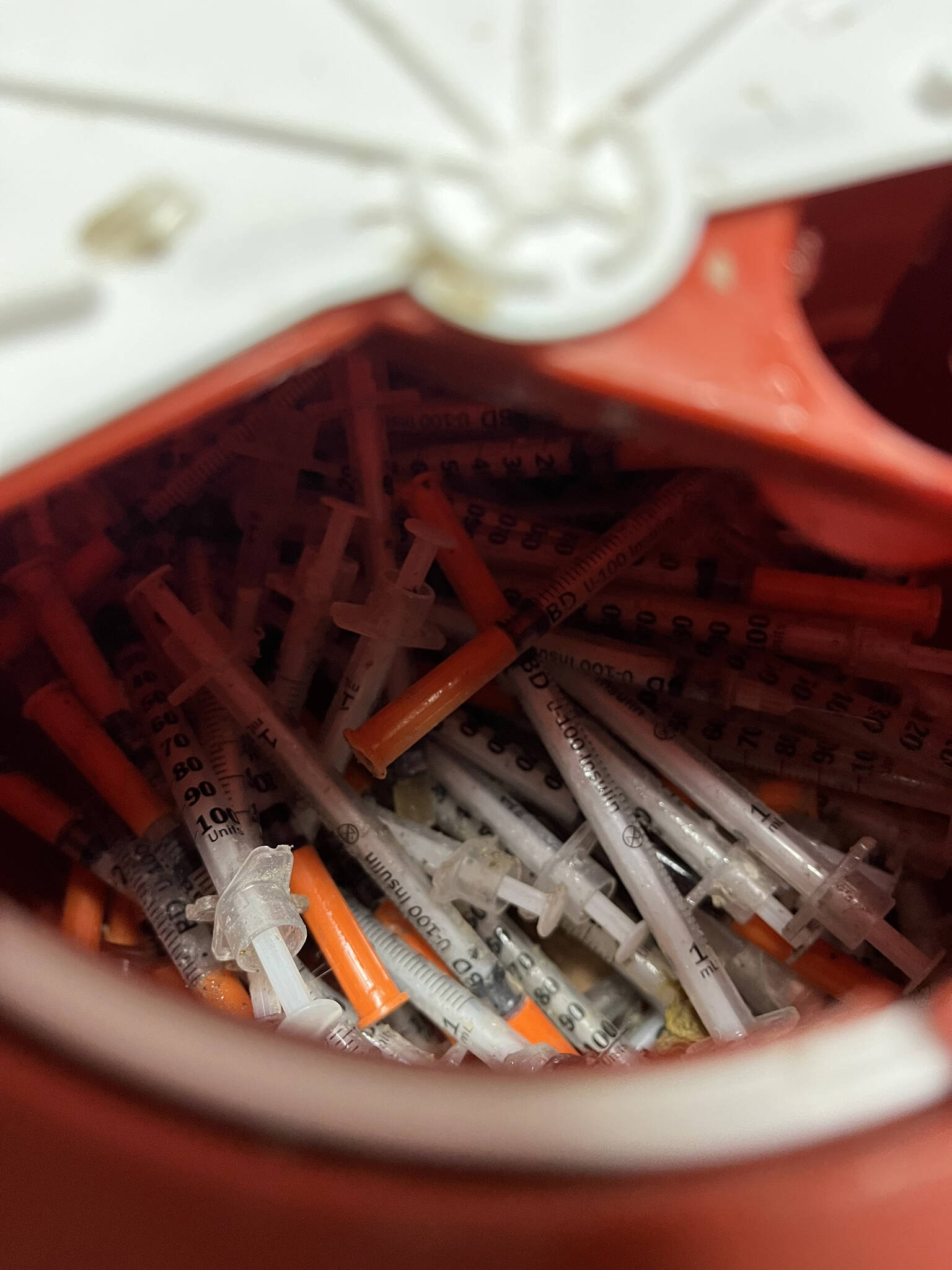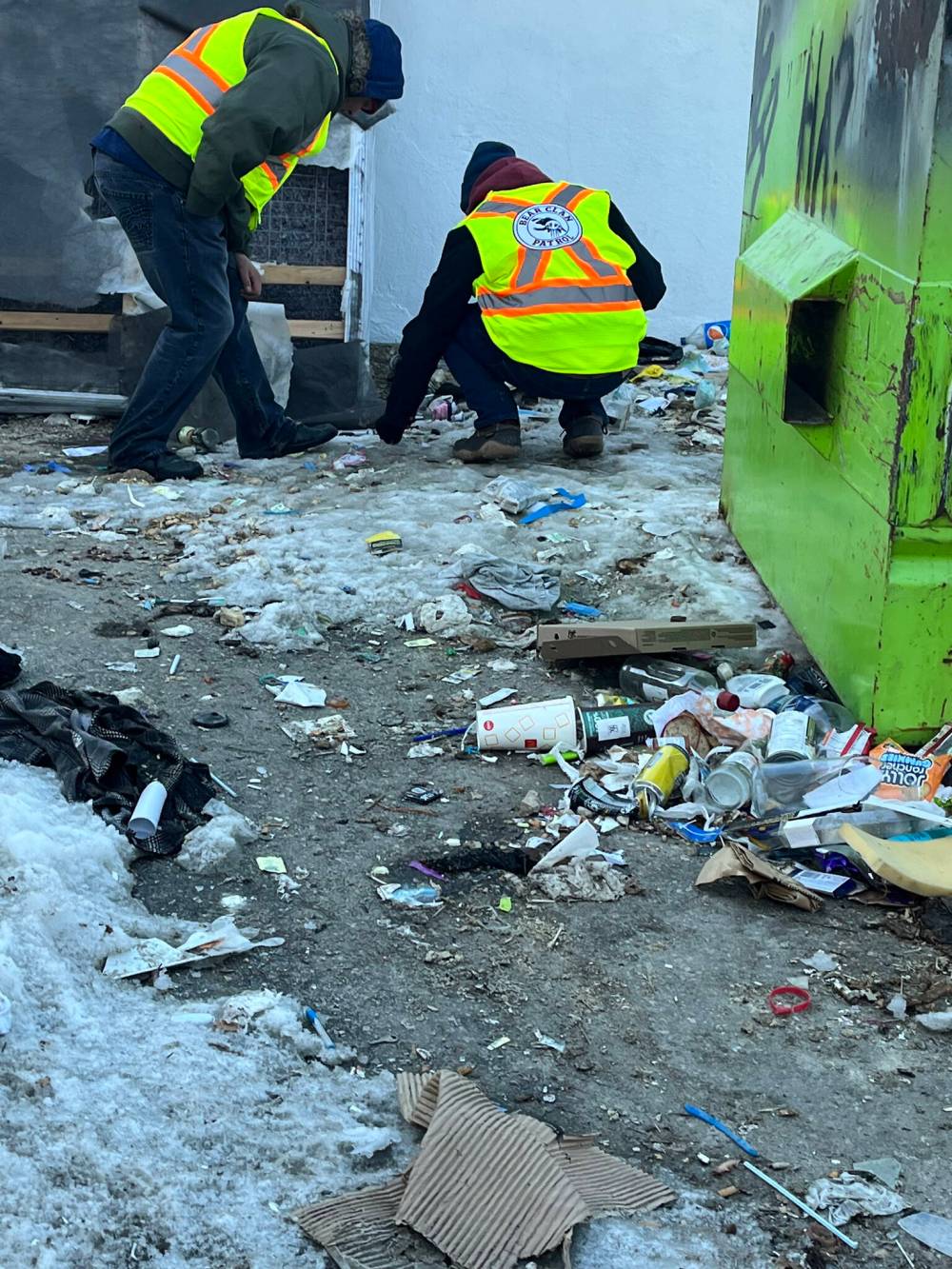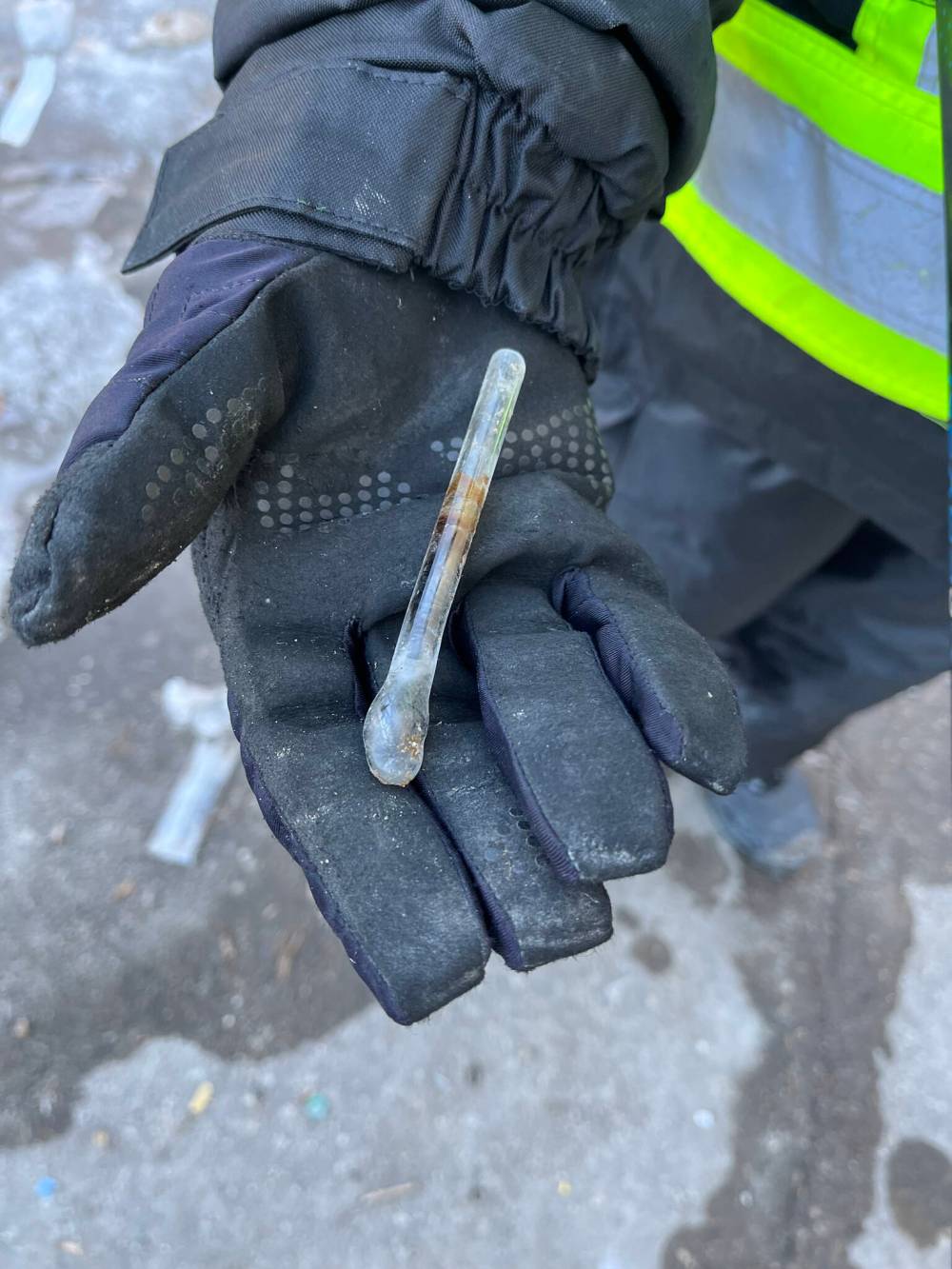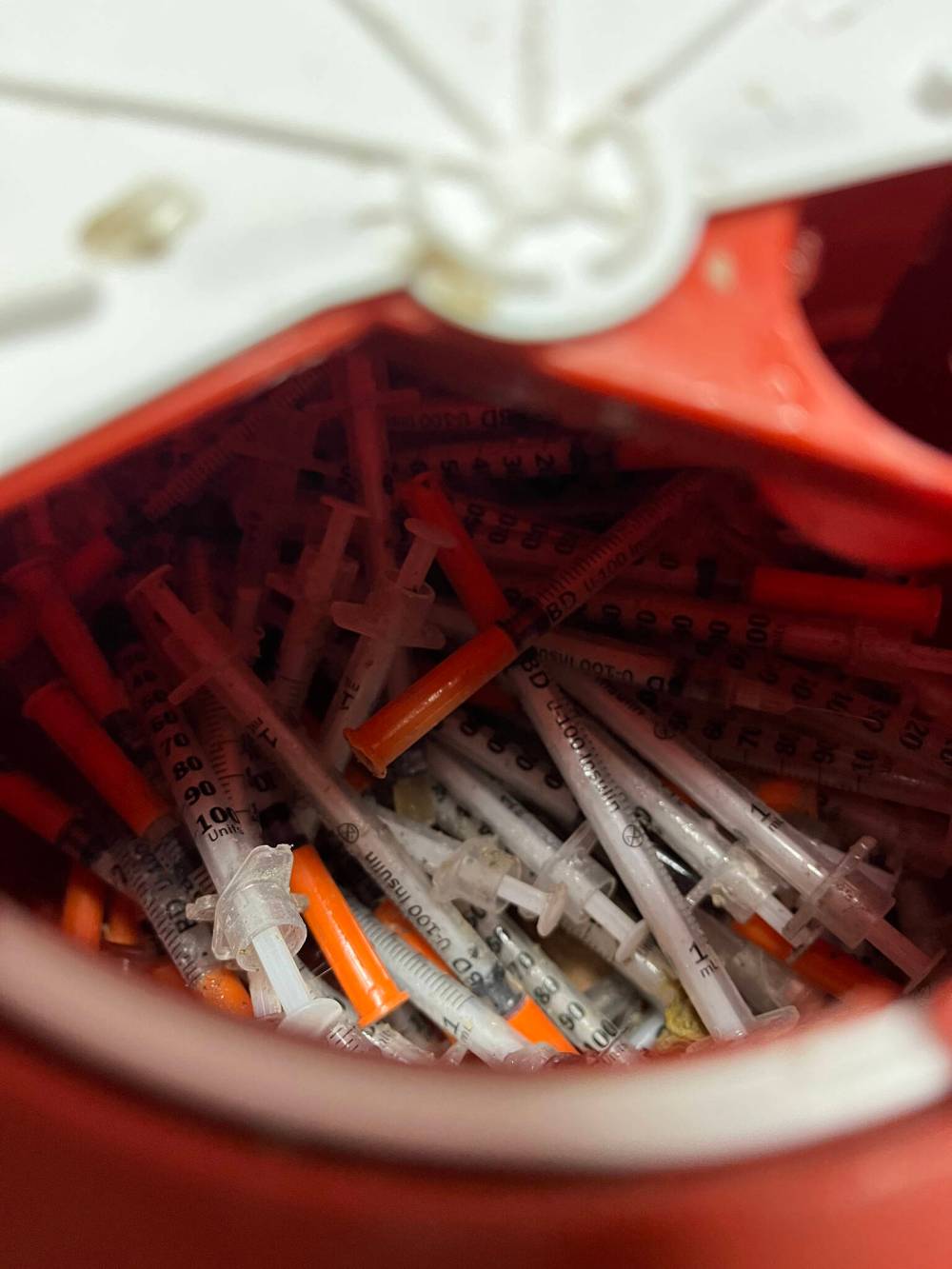
As the snow slowly but surely melts, a prickly reality surfaces across the city — hundreds, if not thousands, of discarded needles.
Cue the Bear Clan.
The group, whose volunteers pick up and dispose of sharps year round, ramps up operations in the spring once the snow has disappeared.
SUPPLIED Bear Clan members gather needles and drug paraphernalia during a patrol Friday. The organization’s regular patrols picked up 11,000 needles from September to December, but ramp up operations in the spring once the snow has melted.
Volunteers picked up 11,000 needles from September to December. In one recent week, 1,000 were collected from the West Broadway area, said executive director Kevin Walker.
“It’s always a spike, obviously, once the spring comes upon us. In the wintertime, we were not finding as much. (In) the spring with the melt, we’re finding a lot more,” he said last week.
The organization picks up needles as part of its Wednesday-Sunday patrols. Volunteers are given puncture-proof gloves, containers for disposal and they are taught the proper way to pick up needles so they stay safe.
“We tend to concentrate a lot on the playgrounds, schoolyards, things like that, where children are playing. That’s our major concern.”
Walker said no neighbourhood can be identified as the worst for discarded needles; they’re showing up more and more citywide.
“I think if anything, it’s gotten a little worse in the amount that we’re picking up and the amount,” he said. “Maybe the use has just gone up, or maybe the number of users has gone up. But it seems that we’re picking up a lot of needles, and I mean throughout the city, not just throughout the neighbourhoods that we patrol.”
Sprucing up the city after it comes alive from the long, cold winter, is a daunting task. Take Pride Winnipeg is up to the challenge. The group has kicked off its litter index program. Over the next week or so, around 500 kilometres of Winnipeg streets will be canvassed and rated from 1 to 10 based on the severity of the litter.
SUPPLIED Bear Clan volunteers are given puncture proof gloves, disposal containers and training in the proper way to pick up discarded
sharps they find during their patrols.
Tom Ethans, Take Pride Winnipeg executive director, said it’s shaping up to be a dirty year.
“From what I see as I’m driving around now, there’s quite a bit of litter out there,” he said.
Regular problem areas include parts of Sherbrook and Maryland streets, around Omand’s Creek, and Bishop Grandin Boulevard to the Perimeter. A particularly bad road might need 20 people to collect a dozen garbage bags of litter at once.
Last year, volunteers noted an increase in overflowing garbage bins in parks, and pandemic PPE, including masks, scattered about.
“The No. 1 thing on streets all the time is cigarette butts, that accounts for 30 per cent of litter on our streets. Normally, plastic bottles and fast-food containers are bad. But last year, masks were horrendous on our streets,” he said.
“I’m expecting there to be fewer masks this spring because less people (wore them).”
SUPPLIED “It’s always a spike, obviously, once the spring comes upon us. In the wintertime, we were not finding as much. (In) the spring with the melt, we’re finding a lot more,” Bear Clan executive director Kevin Walker said last week.
However, there is a bright side to the dirty work. Ethans said so many schools, businesses and groups have signed up for cleanups that the number of volunteers could surpass 2,000. It’s welcome relief after COVID-19 hurt volunteer numbers.
“This is what we want. We want people,” he said. “We’re getting back to normal now, so let’s get out there and everybody work together to help make a difference.”



